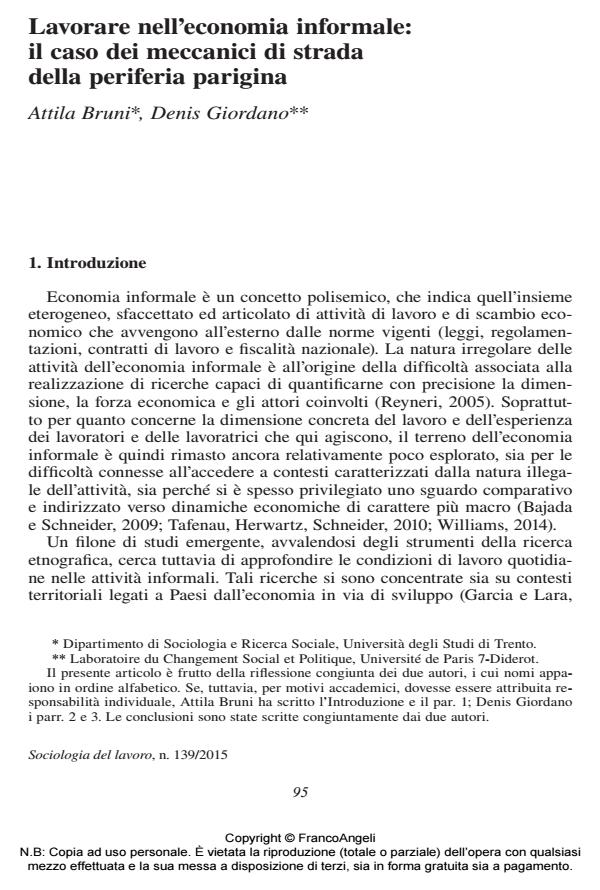Working in the informal economy: the case of streets mechanics in the Parisian suburbs
Journal title SOCIOLOGIA DEL LAVORO
Author/s Attila Bruni, Denis Giordano
Publishing Year 2015 Issue 2015/139
Language Italian Pages 12 P. 95-106 File size 114 KB
DOI 10.3280/SL2015-139008
DOI is like a bar code for intellectual property: to have more infomation
click here
Below, you can see the article first page
If you want to buy this article in PDF format, you can do it, following the instructions to buy download credits

FrancoAngeli is member of Publishers International Linking Association, Inc (PILA), a not-for-profit association which run the CrossRef service enabling links to and from online scholarly content.
Referring to the results of an ethnographic research concerning streets mechanics in the Parisian suburbs the paper aims at looking at informal economy through a practice-based perspective, with a particular emphasis on the activities that constitute its articulations. Looking at the daily work of unofficial mechanics, we will show the relationships of cooperation and trust that mechanics seek and mend both in the relation with the customer, as in the one with the wider social context in which they operate. This enables unofficial mechanics to create different services for customers and gain recognition and legitimacy despite the violation of laws, making the boundaries between formal and informal economy increasingly porous.
Keywords: Work practices, informal economy, ethnography, illegalism, trust
Attila Bruni, Denis Giordano, Lavorare nell’economia informale: il caso dei meccanici di strada della periferia parigina in "SOCIOLOGIA DEL LAVORO " 139/2015, pp 95-106, DOI: 10.3280/SL2015-139008